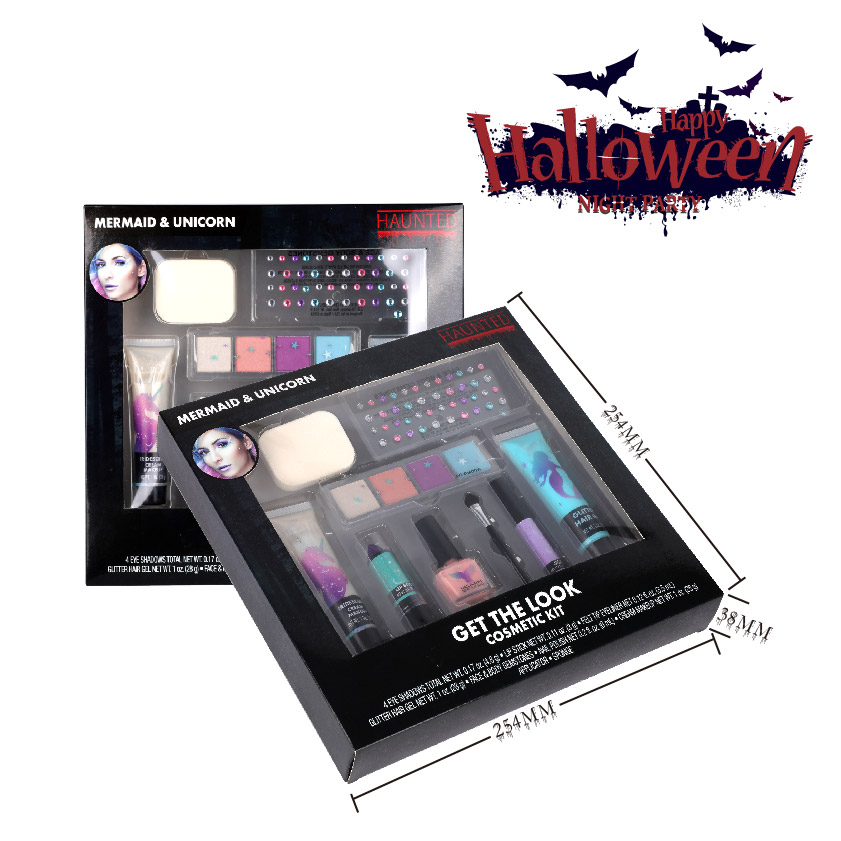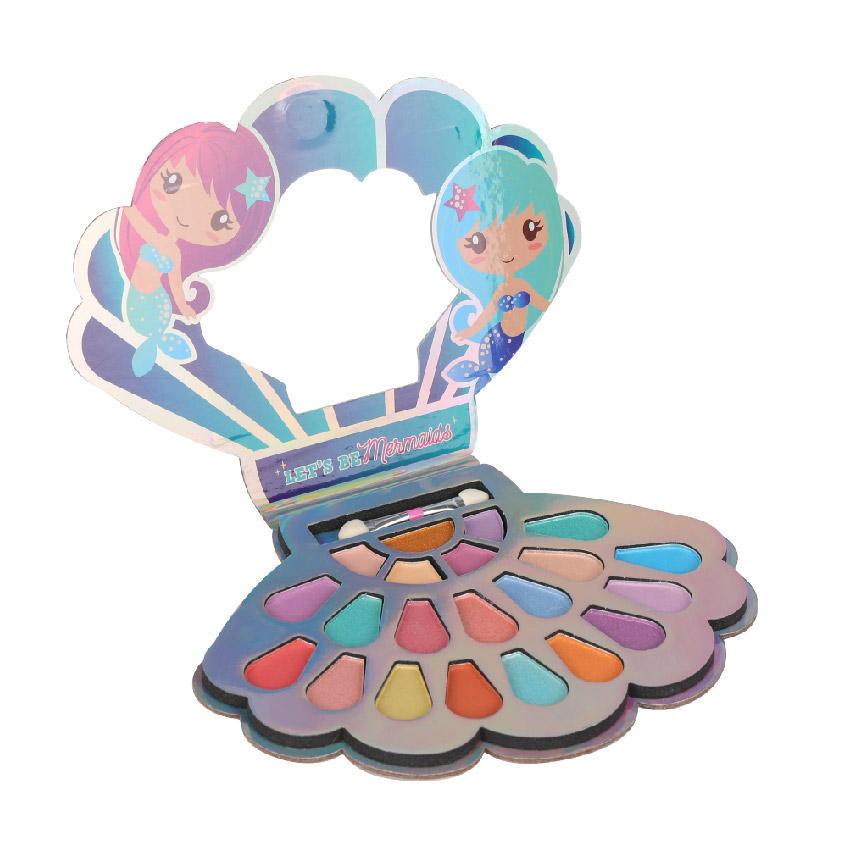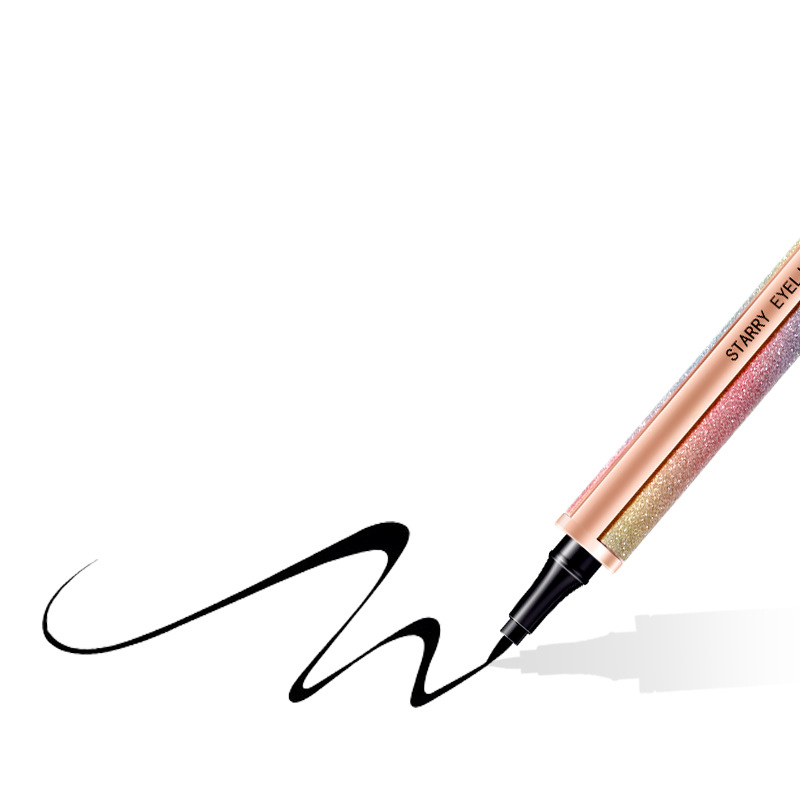-
News2 MINUTE READ
Unleash Your Creativity This Halloween With A High-Quality Halloween Face Kit
Design High Quality Halloween Face All In One Makeup Kit Halloween is a time for fun, creativity, and transformation. Whether you're going f...
Read Article -
News2 MINUTE READ
Explore The Magic Of Halloween Makeup With A Detailed Halloween Face Kit
Halloween Face All In One Makeup Kit Manufacturing Wholesaler Halloween is a time for creativity, fun, and, of course, transforming yourself...
Read Article -
News2 MINUTE READ
Create Unique Halloween Looks With A Versatile Halloween Face Kit
Halloween Face All In One Makeup Kit Factory Manufacturer Halloween is one of the more exciting times of the year, filled with opportunities...
Read Article -
News2 MINUTE READ
Transform Your Look With A Complete Halloween Face Kit For Spooky Celebrations
Sale Wholesale Halloween Face All In One Makeup Kit Company Halloween is a time for fun, creativity, and, more importantly, transformation. ...
Read Article -
News2 MINUTE READ
Budget-Friendly Options For A Stunning Halloween Look: Cheap Halloween Makeup Kit
Design Cheap Halloween Makeup Face Kit Supplier Company Halloween is one of the more exciting times of the year when people get the chance t...
Read Article -
News2 MINUTE READ
Find Your Ideal Look With A Cheap Halloween Makeup Kit
China Cheap Halloween Makeup Face Kit Manufacturing Wholesaler Halloween is the time of year when creativity runs wild, and everyone loves t...
Read Article -
News2 MINUTE READ
Affordable And Fun: Cheap Halloween Makeup Kit For Creative Costumes
Sale Cheap Halloween Makeup Face Kit Factory Manufacturer Halloween is one of the more exciting times of the year, and it’s the ideal opport...
Read Article -
News2 MINUTE READ
Effortless Application With China Liquid Eyeliner Innovations
Supply Cheap China Fine Tip Liquid Eyeliner Maker Company When it comes to achieving a flawless eye makeup look, China Liquid Eyeliner stand...
Read Article -
News2 MINUTE READ
Enhance Your Beauty Routine With China Liquid Eyeliner
Design High Quality China Fine Tip Liquid Eyeliner Supplier When it comes to eye makeup, China Liquid Eyeliner has become a staple in many b...
Read Article -
News2 MINUTE READ
The Art Of Eye Definition With China Liquid Eyeliner
ODM Custom China Fine Tip Liquid Eyeliner Exporter Producer When it comes to eye makeup, precision, and definition are key to achieving a ca...
Read Article -
News2 MINUTE READ
China Liquid Eyeliner: Precision And Style For Every Look
OEM China Fine Tip Liquid Eyeliner Manufacturing Wholesaler When it comes to creating a stunning makeup look, few products are as essential ...
Read Article -
News2 MINUTE READ
Exploring The Elegance Of China Liquid Eyeliner: A Must-Have For Eye Makeup
Sale Wholesale China Fine Tip Liquid Eyeliner Manufacturer The world of beauty is constantly evolving, with makeup products becoming increas...
Read Article

Web Menu
Product Search
Exit Menu
How To Provide Quality Cosmetic Manufacturing Solutions For Clients
Wholesale Cheap Sale Liquid Eyeliner Eyebrow Pencil Supplier
In the ever-evolving world of cosmetics, the demand for high-quality products is paramount. Companies are continually seeking reliable manufacturing solutions that can meet their needs while ensuring safety, efficacy, and innovation. Two essential products in this market are liquid eyeliners and eyebrow pencils, which are crucial for enhancing beauty and defining features. This article will explore how cosmetic manufacturers can deliver exceptional solutions that satisfy client expectations while adhering to industry standards.
Understanding Client Needs
The foundation of any successful manufacturing solution is a thorough understanding of client needs. Each client may have different requirements based on their target market, branding, and product goals. For instance, a client focusing on a natural look may prefer formulations that contain organic ingredients, while another might seek bold and long-lasting options. Engaging in open communication with clients can help manufacturers gather insights about their specific needs, allowing them to tailor solutions accordingly.
Emphasizing Quality Control
Quality control is a crucial aspect of cosmetic manufacturing. Clients expect products that not only perform well but also adhere to safety standards. Implementing robust quality assurance processes throughout the production cycle is essential. This includes:
1. Raw Material Testing: Before production begins, manufacturers should conduct thorough testing of all raw materials. This step ensures that ingredients meet safety standards and comply with regulatory guidelines.
2. In-Process Quality Checks: During manufacturing, regular checks should be performed to monitor product consistency, texture, and color. These checks help in identifying any issues early on, reducing waste and rework.
3. Final Product Testing: Once products are manufactured, conducting stability and performance tests is vital. This step verifies that the liquid eyeliner and eyebrow pencil maintain their quality over time and under various conditions.
Innovative Formulation Development
In today's competitive market, innovation plays a significant role in attracting clients. Manufacturers can invest in research and development to create unique formulations that stand out. For liquid eyeliners, this might involve developing smudge-proof, waterproof, or quick-drying options. For eyebrow pencils, clients may seek products with a blendable formula or added skincare benefits.
Collaboration with clients during the formulation phase is also beneficial. By allowing clients to participate in the development process, manufacturers can ensure the final product aligns with the client's vision. This collaboration can advance to formulations that not only meet industry standards but also resonate with consumers.
Sustainable Practices
Sustainability is becoming increasingly important in the cosmetics industry. Clients are often looking for manufacturers that prioritize eco-friendly practices. Implementing sustainable manufacturing processes can enhance brand reputation and appeal to environmentally conscious consumers.
1. Eco-Friendly Ingredients: Sourcing raw materials from sustainable sources can significantly impact the product's overall footprint. For instance, using plant-based ingredients in liquid eyeliners can appeal to clients focused on natural beauty.
2. Sustainable Packaging: Offering packaging solutions that have less waste or are recyclable can further enhance a client's product offering. Many consumers are now prioritizing brands that demonstrate a commitment to sustainability.
3. Energy Efficiency: Incorporating energy-efficient practices in the manufacturing process can reduce costs and environmental impact. This includes using renewable energy sources and optimizing production methods to less energy consumption.
Adapting to Market Trends
The cosmetics market is dynamic, with trends changing rapidly. Manufacturers must stay ahead of these trends to provide relevant solutions to their clients. This can be achieved through:
1. Market Research: Keeping an eye on industry trends and consumer preferences allows manufacturers to adapt their offerings proactively. This research can inform product development and marketing strategies.
2. Flexibility in Production: A flexible manufacturing process enables companies to respond quickly to changing client demands. This adaptability is crucial for launching limited edition products or seasonal collections.
3. Feedback Loops: Establishing a system for receiving and analyzing client feedback can help manufacturers continuously improve their products and services. Regular communication allows manufacturers to refine their offerings and address any concerns promptly.
Building Strong Relationships
Finally, fostering strong relationships with clients is essential for long-term success. Providing exceptional customer service, maintaining transparency throughout the manufacturing process, and being responsive to client inquiries can enhance client satisfaction. Building trust not only advances repeat business but also encourages clients to recommend the manufacturer to others.
In conclusion, providing quality cosmetic manufacturing solutions requires a comprehensive approach that includes understanding client needs, implementing rigorous quality control, fostering innovation, prioritizing sustainability, adapting to market trends, and building strong relationships. By focusing on these aspects, manufacturers can establish themselves as reliable partners in the cosmetic industry, offering solutions that meet the diverse needs of their clients. Through dedication to quality and customer service, manufacturers can help clients succeed in a competitive market.
Recommend Product
Suggested Articles
Read MoreHelping you along all the way
We can provide customers with quality assurance documents such as MSDS, COA, batch inspection report, package material description, product stability report, etc. We will do our best to meet your requirements.
Subscribe to Our Newsletter
When you subscribe to our real-time information, you can learn about new product launches, exclusive offers and professional customized information at the first time.
Explore Information

 English
English русский
русский Português
Português Deutsch
Deutsch Español
Español




.jpg)














.jpg)

.jpg)

